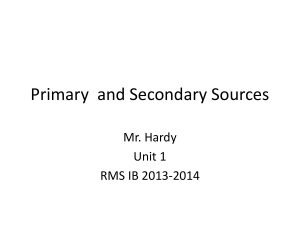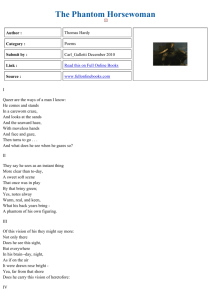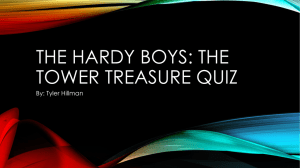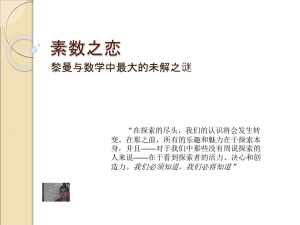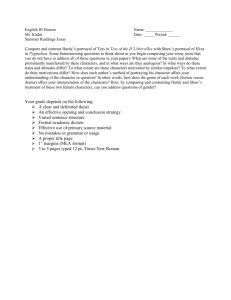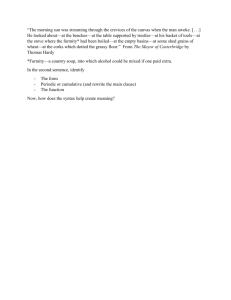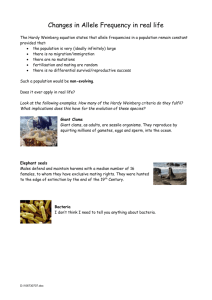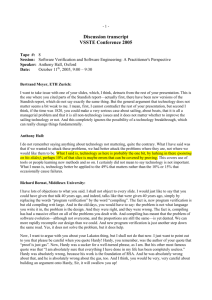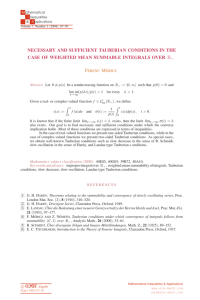'Critical Appreciation'.
advertisement
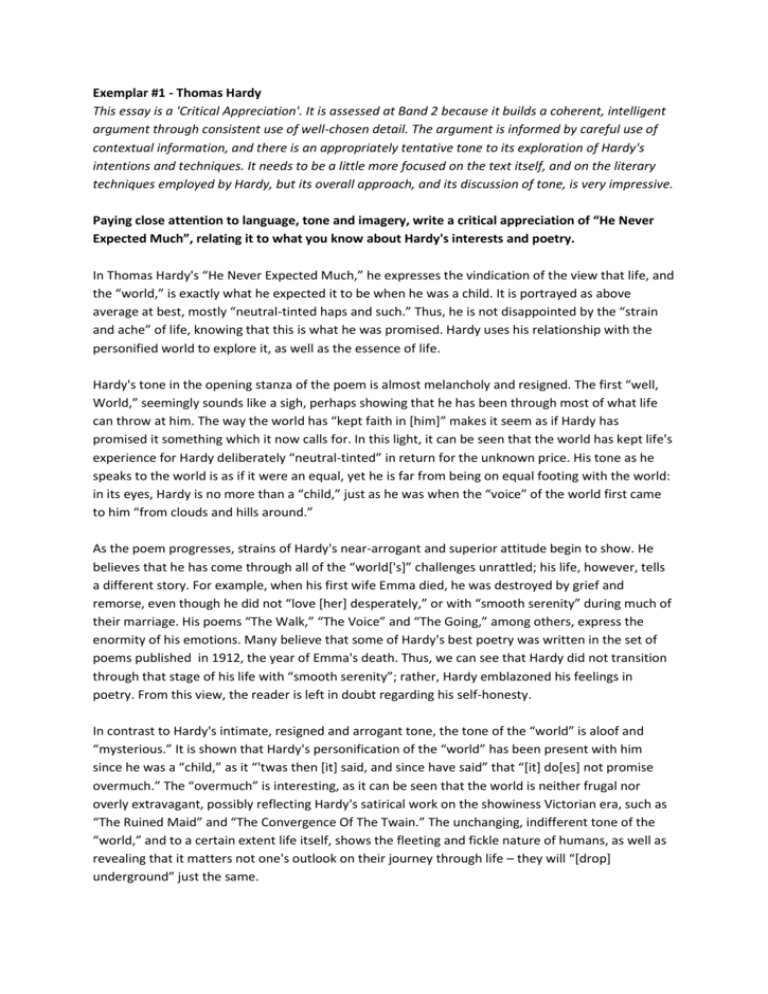
Exemplar #1 - Thomas Hardy This essay is a 'Critical Appreciation'. It is assessed at Band 2 because it builds a coherent, intelligent argument through consistent use of well-chosen detail. The argument is informed by careful use of contextual information, and there is an appropriately tentative tone to its exploration of Hardy's intentions and techniques. It needs to be a little more focused on the text itself, and on the literary techniques employed by Hardy, but its overall approach, and its discussion of tone, is very impressive. Paying close attention to language, tone and imagery, write a critical appreciation of “He Never Expected Much”, relating it to what you know about Hardy's interests and poetry. In Thomas Hardy's “He Never Expected Much,” he expresses the vindication of the view that life, and the “world,” is exactly what he expected it to be when he was a child. It is portrayed as above average at best, mostly “neutral-tinted haps and such.” Thus, he is not disappointed by the “strain and ache” of life, knowing that this is what he was promised. Hardy uses his relationship with the personified world to explore it, as well as the essence of life. Hardy's tone in the opening stanza of the poem is almost melancholy and resigned. The first “well, World,” seemingly sounds like a sigh, perhaps showing that he has been through most of what life can throw at him. The way the world has “kept faith in [him]” makes it seem as if Hardy has promised it something which it now calls for. In this light, it can be seen that the world has kept life's experience for Hardy deliberately “neutral-tinted” in return for the unknown price. His tone as he speaks to the world is as if it were an equal, yet he is far from being on equal footing with the world: in its eyes, Hardy is no more than a “child,” just as he was when the “voice” of the world first came to him “from clouds and hills around.” As the poem progresses, strains of Hardy's near-arrogant and superior attitude begin to show. He believes that he has come through all of the “world['s]” challenges unrattled; his life, however, tells a different story. For example, when his first wife Emma died, he was destroyed by grief and remorse, even though he did not “love [her] desperately,” or with “smooth serenity” during much of their marriage. His poems “The Walk,” “The Voice” and “The Going,” among others, express the enormity of his emotions. Many believe that some of Hardy's best poetry was written in the set of poems published in 1912, the year of Emma's death. Thus, we can see that Hardy did not transition through that stage of his life with “smooth serenity”; rather, Hardy emblazoned his feelings in poetry. From this view, the reader is left in doubt regarding his self-honesty. In contrast to Hardy's intimate, resigned and arrogant tone, the tone of the “world” is aloof and “mysterious.” It is shown that Hardy's personification of the “world” has been present with him since he was a “child,” as it “'twas then [it] said, and since have said” that “[it] do[es] not promise overmuch.” The “overmuch” is interesting, as it can be seen that the world is neither frugal nor overly extravagant, possibly reflecting Hardy's satirical work on the showiness Victorian era, such as “The Ruined Maid” and “The Convergence Of The Twain.” The unchanging, indifferent tone of the “world,” and to a certain extent life itself, shows the fleeting and fickle nature of humans, as well as revealing that it matters not one's outlook on their journey through life – they will “[drop] underground” just the same. Near the end of the poem, Hardy states that he has fully accepted the “wise warning” of the “world.” This shows Hardy's arrogance once again, as well as rejecting any idea that life has given him anything unexpected or “overmuch.” There is, however, the notion that Hardy is perhaps trying to ingratiate himself better with life, as he is somewhat flattering “that mysterious voice” by “[ac]credit[ing]” the “wise[ness]” of the “warning.” As “He Never Expected Much” was written in the year of Hardy's death, it is not unreasonable to assume that Hardy was perhaps nervous of entering the unknown void of death; thus, he is trying to hold onto the gift of life, despite the “strain and ache” that “each year might assign.” Hardy's tone varies throughout the poem, just as the tone of the “world” remains unchanging; from intimate to arrogant, as opposed to aloof and distant. His conclusion that as “he never expected much” - taking the “world['s]” warning that life will inevitably be tumultuous and occasionally unfair – life's various challenges, such as Emma's death, never really affected him. This we can see is patently false, as his wife's death provoked a huge outpouring of emotion - hardly a feature of someone apparently so prepared. Through the rather blunt “voice” of the “world,” Hardy also explores human fallibility: everyone will eventually die. Here, Hardy could be questioning whether life, which does “not promis overmuch” is better than “drop[ping] underground,” where nothing can trouble you again: not grief, anger, remorse, pride or vanity.
